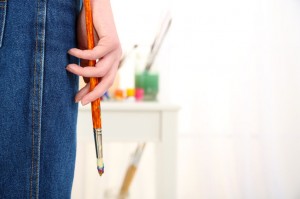Artistic Activism or Disguised Discrimination?

Last week tragedy struck very near my hometown of Dallas, Texas, when religious extremists attacked a cartoon contest in North Texas. It should be noted that this wasn’t just any cartoon contest, it was a political event meant to emphasize the need for the freedom of speech by promoting the drawing of the controversial religious figure prophet Mohammad.
In the aftermath of the attack, in which both assailants were killed, many Texans and Americans are left in the same position that Danish citizens were following a 2005 bombing that terrorist groups claimed was revenge for distasteful cartoons of Mohammad published in a newspaper.
The right to criticize and even publicly lampoon important religious teachings and figures is receiving a robust public defense because many Americans rightly see attempts to limit free speech and satire, whether by the government or by fellow citizens, as undemocratic and dangerous. Still, concerns about the increasing ostracism of marginalized communities like Muslim Americans and how that social exclusion may simply breed more religious extremism have raised fair questions about how far speech can or should go.
Do these events further free speech? Or do they just serve as an outlet for some to express Islamophobia and create propaganda for Islamists who can use the drawings to convince vulnerable Muslim Americans of their isolation from society and of the appeal of fundamentalist religion and its sense of community?
Supporters of these events could point to the recent repeal of a blasphemy law in Norway as a sign that the attention drawn by these events, both negative and positive, can change public policy. And they may be correct in thinking that the human tragedy caused by the terrorist attacks in France and elsewhere were a sufficient catalyst for political change (albeit in a very progressive democracy with relatively low levels of religious belief and negligible religious discrimination.) But is such suffering, both by victims of terrorist attacks and minority religious groups just trying to fit in, really the only way to achieve that change?
The question is not whether these events should be allowed to exist, but whether or not the free speech advocacy community should utilize them in their valiant effort to protect one of the most essential human rights. It’s highly doubtful that the press surrounding these events and the occasional yet horrific attacks on its organizers do enough to promote the idea that no one or no thing is safe from the pen. More often, it just alienates the large number of progressive Americans and moderate Muslims who support free speech but oppose the race-baiting and Islamophobia that can be present at the events and in related media.
This is not to say that all who attend these events are bigots looking for an outlet to express their prejudice. But it would be irresponsible and deceptive to pretend that all those who participate in such artistic activism are doing so out of a sense of liberal belief in free speech.
As a humanist, the freedom of speech, and even the freedom to cause offense or insult to religious Americans who hear my sincere criticisms of their religious beliefs, is a crucial right that I will always work to defend. But humanists also place a lot of value in being reasonable and pursuing ideas which will leave a tangible and positive impact. While there are claims that “Draw Mohammad” events further the freedom of speech, the proof just isn’t there. Our rights are no more secure than before these events started, and the only noticeable change in our society since they began is more violence and discrimination.
